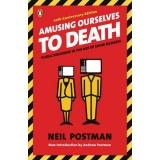| Listing 1 - 10 of 14 | << page >> |
Sort by
|

ISBN: 1844670007 1844675416 9781844675418 Year: 2005 Publisher: London Verso
Abstract | Keywords | Export | Availability | Bookmark
 Loading...
Loading...Choose an application
- Reference Manager
- EndNote
- RefWorks (Direct export to RefWorks)
Mass media --- Television and politics --- Political aspects --- 323 <45> --- 316.774.16:654.197 --- Binnenlandse politiek--Italië --- Televisiewezen: maatschappelijk, politiek, ideologisch, ethisch, juridisch, socio-cultureel--(communicatiesociologie) --- 316.774.16:654.197 Televisiewezen: maatschappelijk, politiek, ideologisch, ethisch, juridisch, socio-cultureel--(communicatiesociologie) --- 323 <45> Binnenlandse politiek--Italië --- 945.095 --- 945.095 Geschiedenis van Italië:--(1945-heden: republiek) --- Geschiedenis van Italië:--(1945-heden: republiek)

ISBN: 014303653X 9780143036531 Year: 2006 Publisher: New York, N.Y., U.S.A Penguin Books
Abstract | Keywords | Export | Availability | Bookmark
 Loading...
Loading...Choose an application
- Reference Manager
- EndNote
- RefWorks (Direct export to RefWorks)
media --- massamedia --- televisie --- internet --- cultuursociologie --- cultuurfilosofie --- 130.2 --- 316.774.16:654.197 --- 316.774.16:654.197 Televisiewezen: maatschappelijk, politiek, ideologisch, ethisch, juridisch, socio-cultureel--(communicatiesociologie) --- Televisiewezen: maatschappelijk, politiek, ideologisch, ethisch, juridisch, socio-cultureel--(communicatiesociologie) --- Mass media --- Influence --- Influence. --- Sociology of culture --- Mass communications

ISBN: 9780761970392 9780761970408 Year: 2006 Publisher: London Sage
Abstract | Keywords | Export | Availability | Bookmark
 Loading...
Loading...Choose an application
- Reference Manager
- EndNote
- RefWorks (Direct export to RefWorks)
Addresses the topic of the political, cultural and moral effects of other people's mediated suffering. This work offers a theoretical perspective on the role of media in global civil society, and looks at how we might begin to analyse the ways in which distant suffering is portrayed, reproduced and consumed, questions touching on the ethical role of the media in public life today. This is a book about the relationship between us as spectators in the countries of the West, and the distant sufferers on our television screen - sufferers in Somalia, Nigeria, Bangladesh, India, Indonesia, but also New York and Washington DC.
General ethics --- Mass communications --- Suffering --- 316.774.16:654.197 --- 316.774.16 --- Affliction --- Masochism --- Pain --- 316.774.16:654.197 Televisiewezen: maatschappelijk, politiek, ideologisch, ethisch, juridisch, socio-cultureel--(communicatiesociologie) --- Televisiewezen: maatschappelijk, politiek, ideologisch, ethisch, juridisch, socio-cultureel--(communicatiesociologie) --- 316.774.16 Massamedia: maatschappelijk, politiek, ideologisch, ethisch, juridisch, socio-cultureel--(communicatiesociologie) --- Massamedia: maatschappelijk, politiek, ideologisch, ethisch, juridisch, socio-cultureel--(communicatiesociologie) --- Moral and ethical aspects

ISBN: 0805832351 0805833501 Year: 1999 Publisher: Mahwah, N.J. Erlbaum
Abstract | Keywords | Export | Availability | Bookmark
 Loading...
Loading...Choose an application
- Reference Manager
- EndNote
- RefWorks (Direct export to RefWorks)
Educational sciences --- Mass communications --- 316.774.16:654.197 --- #SBIB:309H1020 --- #SBIB:309H1023 --- -Television in education --- -Educational television broadcasting --- ETV (Educational television) --- Audio-visual education --- Closed-circuit television --- Educational television stations --- Televisiewezen: maatschappelijk, politiek, ideologisch, ethisch, juridisch, socio-cultureel--(communicatiesociologie) --- Mediaboodschappen: algemene werken (met inbegrip van genres, taalgebruik en historiek) --- Mediaboodschappen met een educatieve functie --- -Aids and devices --- -Televisiewezen: maatschappelijk, politiek, ideologisch, ethisch, juridisch, socio-cultureel--(communicatiesociologie) --- -316.774.16:654.197 --- 316.774.16:654.197 Televisiewezen: maatschappelijk, politiek, ideologisch, ethisch, juridisch, socio-cultureel--(communicatiesociologie) --- -316.774.16:654.197 Televisiewezen: maatschappelijk, politiek, ideologisch, ethisch, juridisch, socio-cultureel--(communicatiesociologie) --- Educational television broadcasting --- Social aspects --- #SBIB:309H103 --- #SBIB:309H402 --- Soap operas --- Distance education --- Teaching --- Mediatechnologie / ICT / digitale media: sociale en culturele aspecten --- Media en publiekgroepen: gebruik van de boodschap, effecten van de media, ... --- Media en publiekgroepen: gebruik van de boodschap, effecten van de media, .. --- Media en publiekgroepen: gebruik van de boodschap, effecten van de media, --- -Social aspects --- -Educational sciences
Multi
ISBN: 9024269288 9789024269280 Year: 1993 Publisher: Kampen : Kok,
Abstract | Keywords | Export | Availability | Bookmark
 Loading...
Loading...Choose an application
- Reference Manager
- EndNote
- RefWorks (Direct export to RefWorks)
Philosophical anthropology --- Mass communications --- Netherlands --- 251*23 --- 316.774.16:654.197 --- 264-055 --- Verkondiging en moderne media: radio; TV; pers --- Televisiewezen: maatschappelijk, politiek, ideologisch, ethisch, juridisch, socio-cultureel--(communicatiesociologie) --- Begrafenis. Lijkdienst. Dodenofficie. Jaargetijde. Bidprentjes --- Theses --- 264-055 Begrafenis. Lijkdienst. Dodenofficie. Jaargetijde. Bidprentjes --- 316.774.16:654.197 Televisiewezen: maatschappelijk, politiek, ideologisch, ethisch, juridisch, socio-cultureel--(communicatiesociologie) --- 251*23 Verkondiging en moderne media: radio; TV; pers
Book
ISBN: 2070226050 9782070226054 Year: 1983 Publisher: Paris: Gallimard,
Abstract | Keywords | Export | Availability | Bookmark
 Loading...
Loading...Choose an application
- Reference Manager
- EndNote
- RefWorks (Direct export to RefWorks)
Étrange objet que la télévision. Dès qu'on tire sur un fil, c'est toute la société qui vient. Et d'image en image, et de crise en crise, elle projette, et s'y projettent, tous les rêves, les drames et les enjeux des démocraties modernes. Comment ne soulèverait-elle pas tant de passions ? Elle touche à l'essentiel : c'est l'objet le plus démocratique des sociétés démocratiques. Cet essai, unique en son genre, est sans doute le premier à mettre au centre de son analyse la place de la télévision dans l'espace public et les règles nouvelles qu'elle introduit dans le jeu politique. Le premier à retracer l'historique du phénomène, depuis les temps héroïques des années cinquante jusqu'aux étonnantes possibilités de la télévision à la carte que permettront les nouvelles technologies. Le premier à décrire le milieu de ceux qui, par l'argent ou le pouvoir, la création, la technique ou la présence à l'écran, dans les bureaux, les studios ou les coulisses, fabriquent ces images dont plus personne ne peut se passer. Le premier à situer les forces et les faiblesses de la télévision française par rapport à ses concurrentes européennes et américaines. Le premier à définir clairement les cadres et les choix des avenirs possibles des systèmes audiovisuels. Les thèses que défendent ici Jean-Louis Missika et Dominique Wolton heurtent nombre d'idées reçues et seront à coup sûr discutées. Mais on ne pourra les ignorer.
Television broadcasting --- Television in politics --- Télédiffusion --- Télévision en politique --- Social aspects --- Aspect social --- 316.774.16:654.197 --- #SBIB:309H1514 --- 654.19 --- -Television broadcasting --- -Television in politics --- -Political broadcasting (Television) --- Politics, Practical --- Telecasting --- Television --- Television industry --- Broadcasting --- Mass media --- Televisiewezen: maatschappelijk, politiek, ideologisch, ethisch, juridisch, socio-cultureel--(communicatiesociologie) --- Radio- en/of televisie: politieke, juridische, ethische, ideologische aspecten (bv.censuur) --- -Broadcasting --- Television in politics. --- Social aspects. --- -Televisiewezen: maatschappelijk, politiek, ideologisch, ethisch, juridisch, socio-cultureel--(communicatiesociologie) --- -316.774.16:654.197 --- 316.774.16:654.197 Televisiewezen: maatschappelijk, politiek, ideologisch, ethisch, juridisch, socio-cultureel--(communicatiesociologie) --- Télédiffusion --- Télévision en politique --- Political broadcasting (Television) --- Télévision --- Télévision et politique --- Chaînes de télévision --- Télévision et politique. --- Chaînes de télévision. --- Télédiffusion. --- Aspect social. --- Television broadcasting - Social aspects - France --- Television broadcasting - Social aspects --- Television in politics - France

ISBN: 2020207893 9782020207898 Year: 1994 Publisher: Paris: Seuil,
Abstract | Keywords | Export | Availability | Bookmark
 Loading...
Loading...Choose an application
- Reference Manager
- EndNote
- RefWorks (Direct export to RefWorks)
En avril 1963, Alain Peyrefitte, ministre de l'Information, inaugure la nouvelle formule du journal télévisé « dont il a pris lui-même l'initiative ». Pendant la République gaullienne, l'étrange lucarne est sous contrôle. Trente ans plus tard, les liens sont distendus, même s'ils ne sont pas rompus, entre le pouvoir et la décision.Haute Fidélité étudie les relations tumultueuses entre les sommets de l'État et le petit écran pendant quarante ans. D'abord indifférents, les gouvernants découvrent le pouvoir cathodique dans les années cinquante. La véritable prise en main a lieu avec le général de Gaulle. La télévision est son instrument, le chef de l'État en abuse. Après la crise de 1968 et le départ du Général, s'ouvre une période de libéralisation. Peu à peu, avec des avancées et des reculs, les rédactions gagnent de l'autonomie. Les hommes politiques apprennent la télévision comme une technique tandis que la concurrence puis la privatisation entraînent une mutation des chaînes. La tutelle politique se fait moins directe, plus subtile aussi.Jérôme Bourdon a utilisé toutes les archives existantes. Il a également interrogé de nombreux protagonistes : ministres, dirigeants de chaîne, journalistes, pour écrire cet ouvrage de référence : il n'existait pas, jusqu'à ce jour, d'histoire politique de la télévision.
Mass communications --- France --- Television and politics --- 316.774.16:654.197 --- 32.019.51 --- -#SBIB:309H1514 --- #SBIB:309H271 --- Television broadcasting --- Politics and television --- Political science --- Televisiewezen: maatschappelijk, politiek, ideologisch, ethisch, juridisch, socio-cultureel--(communicatiesociologie) --- Massacommunicatie. Opinievorming. Politieke beinvloeding. Politieke manipulatie. Propaganda --- Radio- en/of televisie: politieke, juridische, ethische, ideologische aspecten (bv.censuur) --- Politieke communicatie: toepassingsgebieden --- Political aspects --- 32.019.51 Massacommunicatie. Opinievorming. Politieke beinvloeding. Politieke manipulatie. Propaganda --- 316.774.16:654.197 Televisiewezen: maatschappelijk, politiek, ideologisch, ethisch, juridisch, socio-cultureel--(communicatiesociologie) --- #SBIB:309H1514 --- Television and politics - France --- FRANCE --- TELEVISION --- PRESSE FRANCAISE --- MASS MEDIA --- POLITIQUE DE LA TELEDIFFUSION --- HISTOIRE --- INFLUENCE --- VIE CULTURELLE --- 20E SIECLE --- POLITIQUE ET GOUVERNEMENT

ISBN: 0415016592 9781000005509 100000550X 9780367262051 0367262053 9781000018844 1000018849 9781000012323 1000012328 0367261219 9780367261214 9780415016599 9780415016353 0415016355 9780415016476 0415016479 9786610072095 113497969X 1280072091 0203358945 Year: 1999 Publisher: London: Routledge,
Abstract | Keywords | Export | Availability | Bookmark
 Loading...
Loading...Choose an application
- Reference Manager
- EndNote
- RefWorks (Direct export to RefWorks)
Television is a central dimension in our everyday lives and yet its meaning and its potency varies according to our individual circumstances, mediated by the social and cultural worlds which we inhabit. In this fascinating book, Roger Silverstone explores the enigma of television and how it has found its way so profoundly and intimately into the fabric of our everyday lives. His investigation, of great significance to those with a personal or professional interest in media, film and television studies, unravels its emotional and cognitive, spatial, temporal and political significance.
Teaching --- -#PEDA *1.3 --- #PEDA *1.13 --- Didactics --- Instruction --- Pedagogy --- School teaching --- Schoolteaching --- Education --- Instructional systems --- Pedagogical content knowledge --- Training --- Case studies --- #PEDA *1.3 --- Mass communications --- Television broadcasting --- Social aspects. --- Social aspects --- #SBIB:309H040 --- #SBIB:309H402 --- 316.774.16:654.197 --- 654.197 --- 654.197 Facsimile and television broadcasting --- Facsimile and television broadcasting --- 316.774.16:654.197 Televisiewezen: maatschappelijk, politiek, ideologisch, ethisch, juridisch, socio-cultureel--(communicatiesociologie) --- Televisiewezen: maatschappelijk, politiek, ideologisch, ethisch, juridisch, socio-cultureel--(communicatiesociologie) --- Populaire cultuur algemeen --- Media en publiekgroepen: gebruik van de boodschap, effecten van de media, --- Television broadcasting ‡x Social aspects. --- Television broadcasting - Social aspects

ISBN: 0802046991 0802067727 0802027334 1442673672 9781442673670 9780802067722 9780802027337 1442654929 Year: 1990 Publisher: Toronto, Ont : University of Toronto Press,
Abstract | Keywords | Export | Availability | Bookmark
 Loading...
Loading...Choose an application
- Reference Manager
- EndNote
- RefWorks (Direct export to RefWorks)
?There can be no political sovereignty without culture sovereignty.? So argued the CBC in 1985 in its evidence to the Caplan/Sauvageau Task Force on Broadcasting Policy. Richard Collins challenges this assumption. He argues in this study of nationalism and Canadian television policy that Canada?s political sovereignty depends much less on Canadian content in television than has generally been accepted. His analysis focuses on television drama, at the centre of television policy in the 1980s.Collins questions the conventional image of Canada as a weak national entity undermined by its population?s predilection for foreign television. Rather, he argues, Canada is held together, not by a shared repertoire of symbols, a national culture, but by other social forces, notably political institutions. Collins maintains that important advantages actually and potentially flow from Canada?s wear national symbolic culture. Rethinking the relationships between television and society in Canada may yield a more successful broadcasting policy, more popular television programming, and a better understanding of the links between culture and the body politic. As the European Community moves closer to political unity, the Canadian case may become more relevant to Europe, which, Collins suggests, already fears the ?Canadianization? of its television. He maintains that a European multilingual society, without a shared culture or common European audio-visual sphere and with viewers watching foreign television, can survive successfully as a political entity ? just as Canada has.
Mechanics, Analytic --- 316.774.16:654.197 --- #SBIB:309H1522 --- Televisiewezen: maatschappelijk, politiek, ideologisch, ethisch, juridisch, socio-cultureel--(communicatiesociologie) --- Radio- en/of televisieprogramma’s met een ideologische en spiegelfunctie --- 316.774.16:654.197 Televisiewezen: maatschappelijk, politiek, ideologisch, ethisch, juridisch, socio-cultureel--(communicatiesociologie) --- #SBIB:309H1514 --- Radio- en/of televisie: politieke, juridische, ethische, ideologische aspecten (bv.censuur) --- Television broadcasting --- Television and politics --- Nationalism --- Social aspects --- Politics and television --- Political science --- Telecasting --- Television --- Television industry --- Broadcasting --- Mass media --- Political aspects --- CINEMA --- CULTURE NATIONALE DANS LES FILMS --- SOCIETE ET LE CINEMA --- TELEVISION ET LE CINEMA --- CANADA
Book
ISBN: 9780415712361 9780415882927 9780203819104 9781136740770 9781136740817 9781136740824 0415882923 Year: 2011 Publisher: New York: Routledge,
Abstract | Keywords | Export | Availability | Bookmark
 Loading...
Loading...Choose an application
- Reference Manager
- EndNote
- RefWorks (Direct export to RefWorks)
82:791.43 --- 82:791.43 Literatuur en film --- Literatuur en film --- Convergence (Telecommunication) --- Interactive television --- Television viewers --- Tv-publik --- TV-teori --- Audience reception --- Television viewers. --- 316.774.16:654.197 --- Audiences, Television --- Television audiences --- Television fans --- Television watchers --- Viewers, Television --- Telecasting --- Television industry --- Televisiewezen: maatschappelijk, politiek, ideologisch, ethisch, juridisch, socio-cultureel--(communicatiesociologie) --- Tv-publik. --- TV-teori. --- Audience reception. --- 316.774.16:654.197 Televisiewezen: maatschappelijk, politiek, ideologisch, ethisch, juridisch, socio-cultureel--(communicatiesociologie) --- Television broadcasting --- Attitudes. --- Technological innovations. --- Digital television --- Television --- Broadcasting --- Mass media --- Digital communications --- Digital media --- Telecommunication --- Social aspects --- Technological innovations --- Audiences --- Mass communications
| Listing 1 - 10 of 14 | << page >> |
Sort by
|

 Search
Search Feedback
Feedback About UniCat
About UniCat  Help
Help News
News